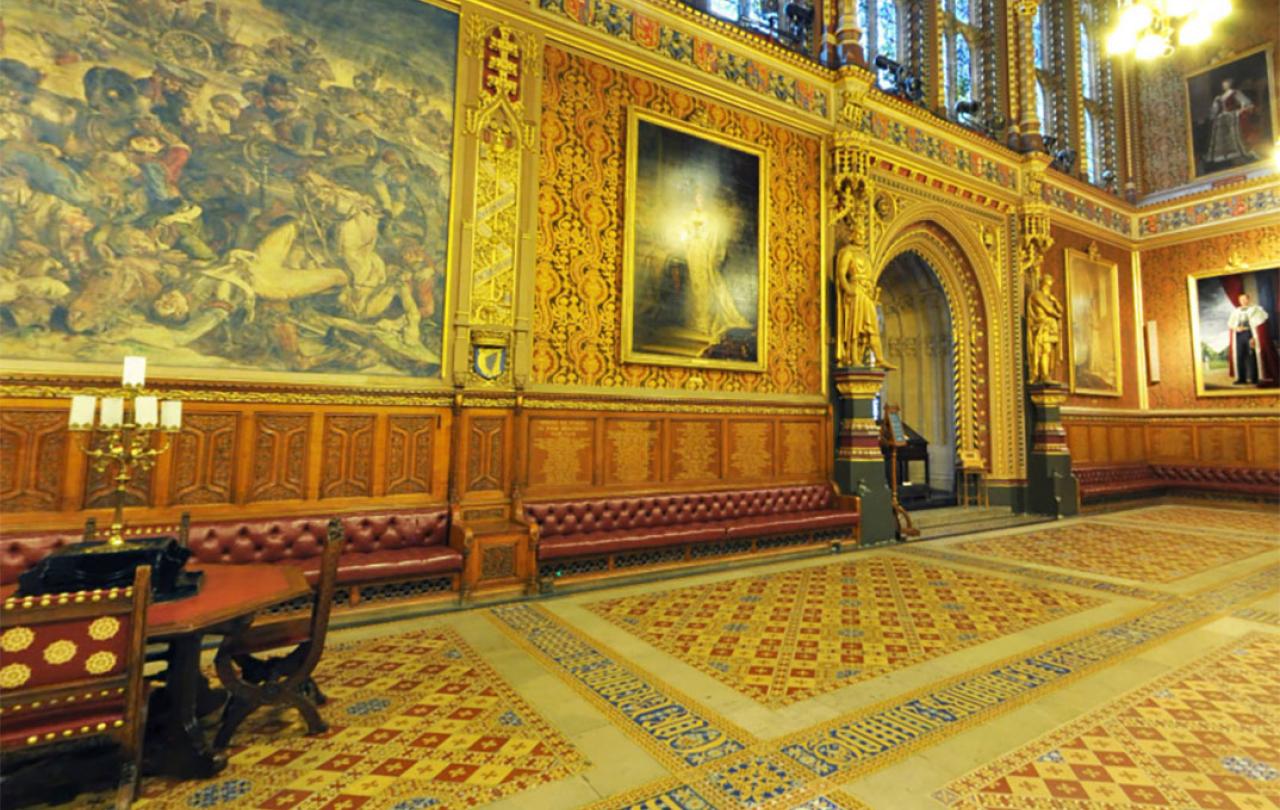No one should be surprised when Coldplay release a song called 'We Pray'. Yes, the band's back catalogue is already peppered with references to the divine, but prayer in song is remarkably unremarkable.
Just do a quick search on Spotify: Coldplay are hardly alone. In recent years our purveyors of prayer have notably also included HAIM and Elda Good. Go a little further back: Leonard Cohen, even Take That and Duke Ellington. Which song do you immediately think of when I mention Bon Jovi? And who could forget Madonna, Dionne Warwick or Andrea Bocelli with Katharine McPhee. Prayer makes good music sales.
A recent poll by Skylight showed that 61 per cent of Americans pray. And, 9 in 10 of those believed they'd received an answer to prayer in the past year. If prayers and songs are both places for us to process emotion, then the genre overlap is hardly surprising.
But when you think about it, these songs at their essence sing about a spiritual practice. The spirituality is sometimes overt, and sometimes prayer is useful as a device for something else (Nick Cave's immortal line: 'I don't believe in an interventionist God / But I know, darling, that you do…'), but whichever way you slice it, we sing about prayer because prayer is one of our deepest instincts. We get meta about our metaphysics because the divide between the sacred and the secular simply isn't there. 43 per cent of respondents to this recent survey were almost as likely to pray in nature as they were in a house of worship (46 per cent). We pray for all manner of reasons, which is the premise of Coldplay's song, why 'we pray'.
This instinct seems to have also birthed the song itself. ''We Pray sort of wrote itself like some of the good songs do,' Chris Martin recently revealed. 'In Taiwan, in the middle of the night, I woke up and the song was in my head, and I don't know where it came from. So, the sound of it sort of dictated itself and that's all. I just sort of followed the road map that it said.'
The ambiguity of the song's origins also matches the huge scope within the song for the listener to interpret as they wish. Coldplay have fascinatingly added a 'blank verse' version online where people can ad lib their own prayers within the song. This is not unlike the practice of many 'charismatic' worship leaders, providing a space for deeply personal expressions of prayer within a corporate religious experience. And whether you're at Glastonbury or alone with you and your AirPods in the park, the offer is not only to connect with a higher power, but to reflect on why you're doing so at the same time.
What if the power instead resides not in the person praying, nor in the prayer itself, but in the recipient of the prayer?
We may not all have the musical genius of Martin, but many of us similarly profess an innate desire to pray, regardless of religious beliefs. Studies come and go showing that praying can also have emotional benefits.
So, the question arises: is there power in prayer? If the power is in the act itself, then it's on par with manifesting.
The act, and thoughts of manifesting may have the same motivations as prayer for many, but it can be argued that manifesting is not in the same category as prayer. Much like The Secret or The Power of Positive Thinking, manifesting the latest new age trend where your mind achieves your aspirations: you can simply manifest that new job, relationship, or Ferrari. But the practice has its limitations, and its critics. Vox's senior correspondent Rebecca Jennings reports that 'Overestimating the power of one’s thoughts, which is a symptom of OCD among many other disorders, 'could be very dangerous to people who already have anxiety disorders, but potentially, it might even be enough to start those symptoms happening in someone who originally doesn’t', according to cognitive neuroscientist Rhiannon Jones.
I recently spoke to a couple of women in their early 20s who'd just returned from a manifesting conference. Manifesting may have the same motivations as prayer for many, but it can be argued that manifesting is not in the same category as prayer, even though this hugely popular practice could be understood as a secular form of piety, potentially rivalling that of the devout. But what if the power instead resides not in the person praying, nor in the prayer itself, but in the recipient of the prayer? Martin hints that the prayer itself is not the power. He sings 'Only by his grace', and 'for someone to come and show me the way.'
Simply searching on Spotify with the keyword 'pray' is only the tip of the iceberg for prayerful songs. Many of them don't include the word, yet still meditate on prayer. For instance, U2 sang 'I waited patiently for the Lord, he inclined and heard my cry' - a reworking of King David's Psalm 40 where he is lifted out of the miry pit. The psalm's final verse begins 'But as for me, I am poor and needy; may the Lord think of me.' This is not so much a song of spiritual practice, but desperation. It can be hard even to pray when you're stuck in a rut. And in his helplessness, David finds that there is someone who fills his mind with thoughts about him.
I've recently sat with people who've in some form of prayer thanked God, the universe, even the day itself. The blank space is there. The space is for us to fill. But what if we are not praying into the void? Because far and above any personal experience or benefit of prayer, the ordinariness of prayer is really quite extraordinary: We pray. Someone is listening.





